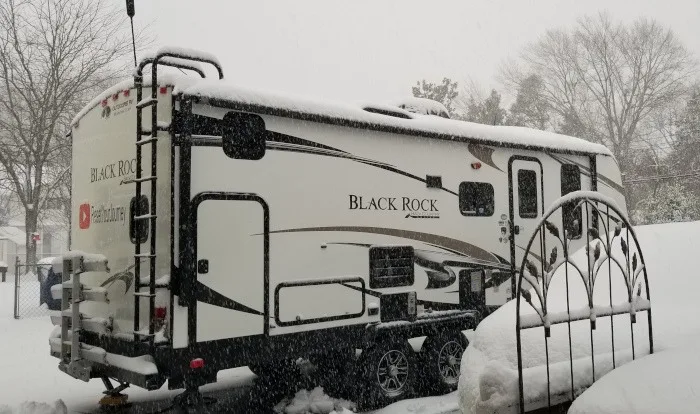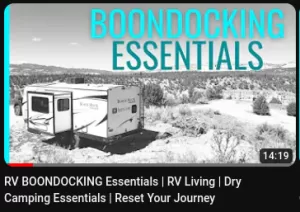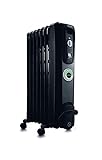Last Updated on 07/08/2024 by Glynn Willard
Is It Safe To Use A Space Heater In An RV?
Yes, you absolutely can use a space heater in an RV!
Even if you don’t use your RV in the winter months, there are a lot of reasons to have a small space heater onboard your RV.
Even summer months at elevation or further north can experience some cold weather.
We love camping in the winter months in our travel trailer, so we have several options in our arsenal.
There’s no sense in shopping specifically for RV space heaters, since most on the market will fit the bill.
We’re now part-time RVers, but we were fulltime RVers for two years and used our space heater more than we thought.
We even used it while boondocking. It all comes down to how you use electricity in your RV.
I’m actually really glad we included it in “must haves” for our RV since my initial thought was, “but it already has a heater.”
Let’s look into how to safely use a space heater in your RV.
Small Space Heaters For RV’s
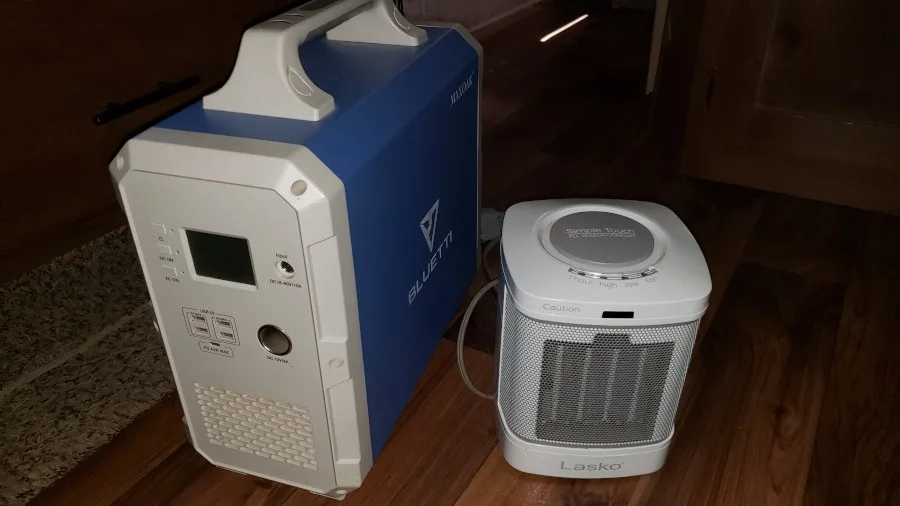
Our smallest space heater could run off our Bluetti.
Small space heaters on some occasions are the most efficient way to heat an RV. Especially if it’s above freezing.
Of course, haphazard use of portable electric heaters in an RV can be dangerous.
So, when I say, “yes you can use a space heater in an RV,” it comes with some caveats and considerations.
We find great value in several different types of space heaters in our travel trailer for different situations.
So let’s look at the types of space heaters for an RV, safety concerns, different situations and some considerations when heating your RV with a space heater.
RV Power Source Considerations
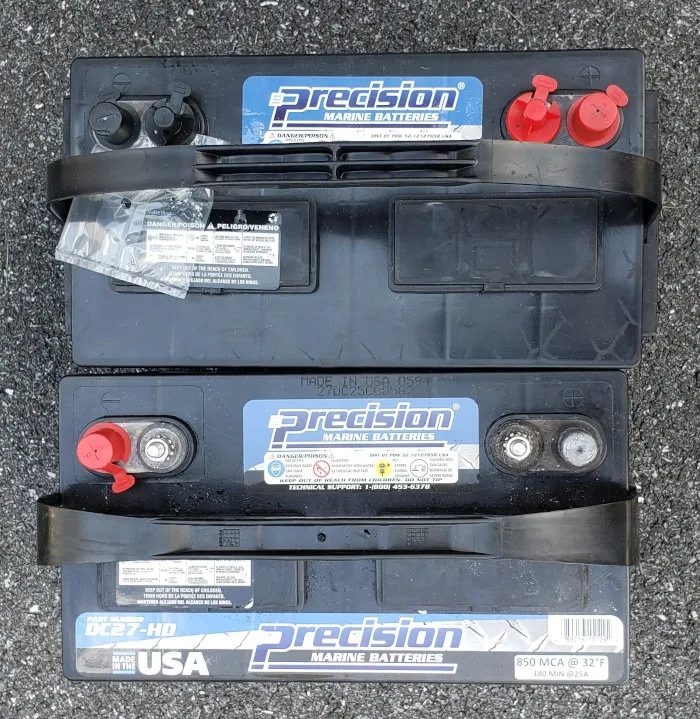
The type of power source you’re using in your RV makes a difference as to whether you many want to consider a portable space heater as an option.
RV owners are very opinionated about their RV’s power source. I say, use what works best for you without judgement to others.
Unless of course you’re boondocking around a bunch of other campers and running a over sized, loud generator. Then you’re just disturbing the peace.
If your rig is 30 or 50 amps and you always stay in RV parks, a space heater should be packed somewhere in your rig. It’s easier on your bank account.
But please keep in mind that if your rig is 30 amp, you should limit your electrical draw when the space heater is running.
In other words, don’t run the microwave, space heater and hair dryer at the same time.
If you boondock like us all the time, your set up may not support the 1500 watt draw of a space heater.
Honestly, if you’re not sure whether or not your set up will power a space heater, it likely will not.
Types Of Space Heaters For RV’s
Not all space heaters are created equal and not all are suitable for RV’s. But only having one heat source in an RV may not be suitable for many.
So, lets look at at options for adding an additional heat source.
Yes, the pictures below are affiliate links based on space heaters I would actually be comfortable using in my travel trailer.
- Infrared Space Heater:
If your rig has one of those “fake fireplaces,” it’s probably an infrared heater. Technically, it could be used as your “space heater.”Rather than heating the air, they heat physical objects nearby, which if you studied thermodynamics in college, you’ll already know their effect lasts longer.
Keep in mind, they can be heavy, so they’re a better option if your stationary (RV weight limits, anyone?). Infrared space heaters typically range from 750-1500 watts.
- Fan Space Heaters:
This is like your hairdryer. It heats up a coil of wire and blows air across the coil and into your small space.It heats the air and must be left on to maintain any heat. Fan space heaters typically range from 750-1500 watts.
- Ceramic Space Heaters:
Much like a fan based space heater, coils heat a ceramic plate which then dissipates heat.They’re quick to heat up, but ours still takes awhile to heat our rig. It stays hot long after we turn it off, so we have to keep it out in the open for awhile after we turn it off.
The last thing you want to do is turn it off and immediately pack it back under the bed with flammable material. Wait until it’s cool! Ceramic space heaters typically range from 520-1500 watts.
Check out my review of the best ceramic heaters for an RV if you think a ceramic space heater is right for your RV.
- Oil Filled Space Heaters:
When our rig is stationary at our house, we run a radiant oil filled unit.They’re heavy, but efficient, so radiant heaters should only be used when you’re stationary for extended periods.
In fact, I believe it’s the best electric heater for an RV if you’re stationary. Many have built-in thermostats. Oil filled radiant heaters typically range from 600-1500 watts.
- Panel Space Heaters:
Panel space heaters are gaining popularity, but they don’t heat a small space quickly like a ceramic space heater.Regardless, a panel space heater is a good option if you’re stationary for a long time. If you want the air really warn, a radiant oil filled space heater is a superior choice.
But if all you need to do is take the chill off the air efficiently, a panel space heater might be best space heater. Panel space heaters typically range from 600-1500 watts.
I didn’t mention a portable propane heater because they are not safe or suitable for a small space like an RV. There’s a high risk of carbon monoxide poisoning, not to mention the fire risk increases exponentially!
Also, I have a friend who heats his campervan with a small Chinese diesel heater. He loves it, but I’m not comfortable recommending it or reviewing it as an option.
RV Space Heaters In RV Parks
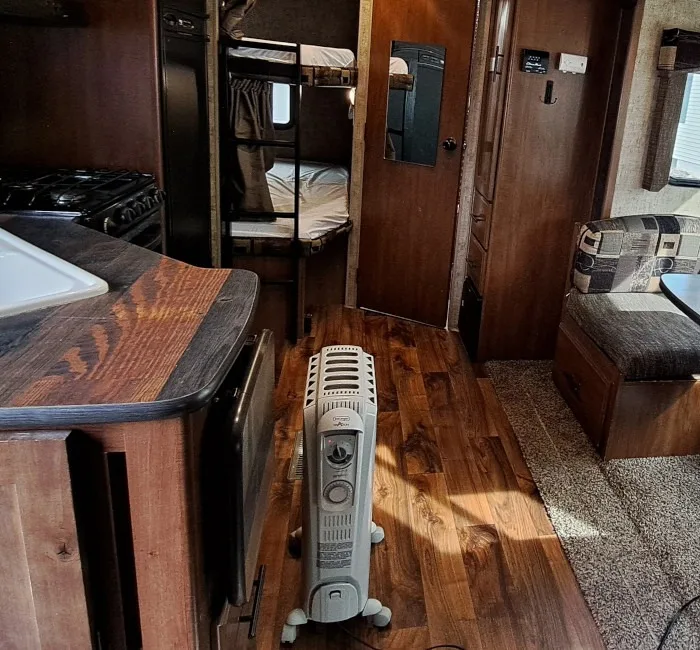
We used our oil filled radiant heater when stationary.
We use our small ceramic space heater in our RV in cooler temps when we have to stay at an RV park.
If you read more about us, we boondock most of the time, so RV parks, albeit necessary at times, are rare.
If you’re staying long-term in an RV park, you may be billed separately for electricity. Keep that in mind.
So you’ll have to gauge whether electricity from the park, your batteries or using your propane/diesel is cheaper.
If you’re just staying a few nights, electricity is generally included, so without being wasteful, using a space heater is your least expensive option.
We defaulted to a space heater whenever we stayed in an RV park to save propane if the ambient temperature was too cold.
If you’re winter camping and it’s below freezing, you’ll have no choice but to use your furnace in addition to a space heater.
This way, your water, waste tanks and plumbing will not freeze.
Space Heaters For RV’s While Boondocking
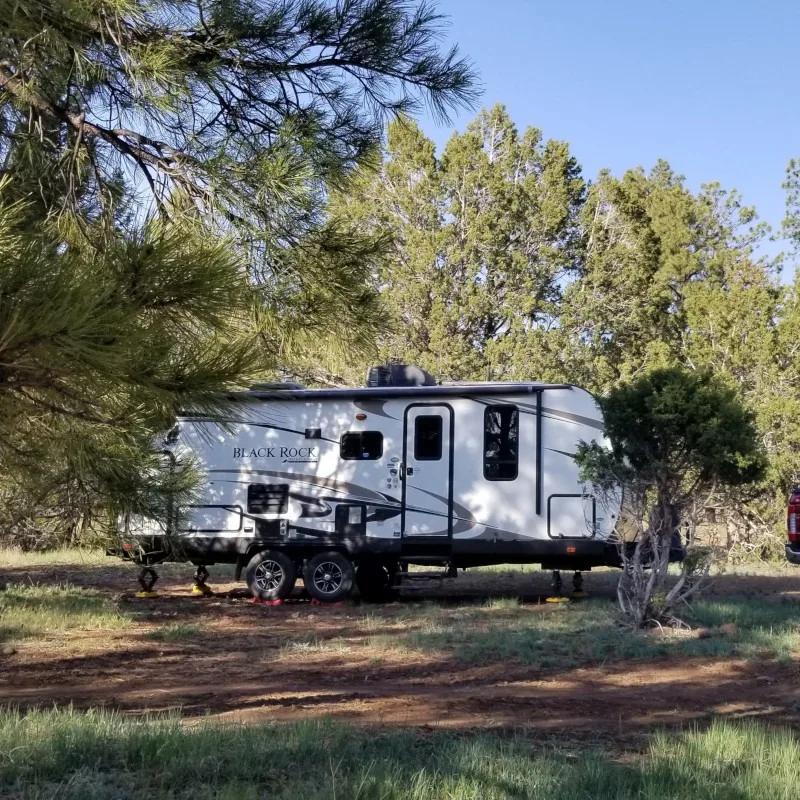
Safe dispersed camping location outside of Flagstaff, AZ.
Space heaters are high wattage, period.
So if you are running off 200 amp hours of battery power and an inverter, you’ll drain them very rapidly.
Even if you have more amp hours and solar, it will still suck your stored power dry!
That leaves your generator(s) as your power source. For us, there have been times that it’s more efficient to run two Yamaha generators in parallel generating 30 amps to run a space heater and other power hungry appliances.
It’s not our go-to, but if all we need to do is take the chill off the air and we had the generators running for the microwave, we’d leave them on for the space heater.
It was superior than firing up our propane furnace which relies on too much propane (and battery power for the fan). Seriously, a furnace will burn through propane very quickly!
And we need our propane to last for hot water and our stove burners. It’s easier to buy gas for the generator than have the propane tank filled.
If your generator is onboard, that statement applies to your main diesel or gasoline source as well.
Considerations When Using Portable Space Heaters In An RV
We’ll discuss the safety guidelines below, but there are a few consideration when using an electric space heater.
- Your propane furnace is generally ducted through the underbelly to supply heat to the water lines, fresh and waste water tanks.
I mentioned earlier, if it’s below freezing, you’ll have no choice but to run heat through the underbelly. The risk of frozen pipes are not worth saving propane or diesel. - Space heaters should only be used when you’re present in the RV. That said, I believe it’s safe to leave an oil based radiant heater with a built-in thermostat alone in your RV.
- A space heater with multiple settings allowing a lower setting in case you need to minimize the draw on your rigs electrical system.
Look For These Features In A Portable Heater For An RV
- Most importantly, an auto shut off feature for surges and tip overs.
- An adjustable thermostat feature is a good idea.
- A timer that turns the heater on and off.
- Multiple heat settings to accommodate your rigs square feet.
- Light weight and compact design: all campers have weight limits. Unless you’re stationary, a heavy space heater has no place in a camper.
- The lower the power draw, the better as long as it’s rated for your RV’s square footage.
Safety Guidelines When Using A Space Heater In An RV
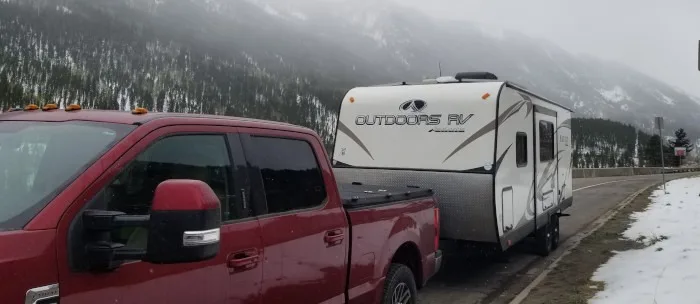
Long hauls in inclement weather are exhausting and cold.
The space heater you choose must have an automatic shut-off switch if it falls over.
When you’re running a space heater in a small space like an RV, it’s easy to accidentally kick it over. Ask us how we know!
So, yes, it needs tip-over protection. You get the idea.
Keep the following considerations in mind if you’re operating an electric space heater in an RV:
- Keep it away from anything flammable (for obvious reasons).
- Space heaters should not be plugged into a power strip.
- If you must use an extension cord, make sure it’s low gauge and designed for a high amperage draw.
- To keep things safe and simple, just avoid space heaters that rely on combustible fuels.
- Avoid running a ceramic or fan based space heater in your rig in your absence.
Many of the safety concerns are no different than a sticks and bricks house.
And you’re already well aware of how quickly an RV fire will engulf your rig in minutes!
Whatever you choose should have the above built-in safety features.
In other words, amplify your exercise of caution when using a space heater in an RV.
Not Sure What You Need For Your RV?
Wrapping Up Space Heaters For RV’s
Space heaters are a great supplement to your RV’s furnace (or replacement at times).
Regardless whether you’re full-time RVers, part time or just take road trips, you should pack an efficient, light weight space heater in your rig.
On a cool evening, you’ll be really glad you did.
Just make sure you’re well advised on the type of power system in your rig and how much power you can safely draw.
Remember, you’re not in a house with a high current connection to the grid.
If you’re ready for a portable heater in your RV, using one of the above affiliate links will help take the thought process out of the equation.
And we really appreciate it 🙂
Stay warm and happy camping!
FAQ
-
Can you use an electric space heater in a camper?
Absolutely! Just be aware of the safety precautions listed above as well as the power draw on your system.
-
Can you leave a space heater unattended in an RV?
I don’t recommend it unless it’s a radiant heater with a timer or thermostat.
-
How many watts do space heaters use in an RV?
Most space heaters use 1500 watts. If you’re running off batteries, it will drain them quickly.
-
What’s the best electric space heater for RV use?
If you’re stationary, a radiant or infrared heater is best. But if you’re on the move a lot, a lightweight ceramic heater is best.
Meet the author.
We appreciate any help we can get to bring you great content. Donate or buy us a coffee on our Ko-Fi site.

More about the author: Glynn

